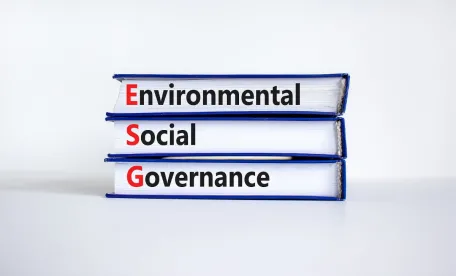In late 2022, the Department of Labor finalized a new rule titled “Prudence in Selecting Plan Investments and Exercising Shareholder Rights,” largely reversing Trump-era guidance that had strictly limited the ability of plan fiduciaries to consider “environmental, social, and governance” (ESG) factors in selecting retirement plan investments and generally discouraged the exercise of proxy voting. In short, the new rule allows a fiduciary to consider ESG factors in selecting investment options, provided that the selection serves the financial interests of the plan and its participants over an appropriate time horizon, and encourages fiduciaries to engage in proxy voting.
The final rule moves away from 2020 Trump-era rulemaking by allowing more leeway for fiduciaries to consider ESG factors in selecting investment options. Specifically, the rule states that a “fiduciary’s duty of prudence must be based on factors that the fiduciary reasonably determines are relevant to a risk and return analysis and that such factors may include the economic effects of climate change and other ESG considerations on the particular investment or investment course of action.” The rule makes clear, however, that there is no requirement to affirmatively consider ESG factors, effectively limiting its scope and effect and putting the onus on fiduciaries to determine whether they want to incorporate ESG factors into their assessments of competing investments.
Overview
-
Similar to the Trump-era guidance, there is no definition of “ESG” or an “ESG”-style fund. Debate continues over what kinds of funds can be considered ESG investments, especially in light of the fact that some companies in industries traditionally thought to be inconsistent with ESG conscious investing are now trying to attract ESG investors (e.g. industrials, energy).
-
Fiduciaries are not required to consider ESG factors in selecting investment options. However, the consideration of such factors is not a presumed violation of a fiduciary’s duty of loyalty or prudence. Unlike the prior rule, which suggested that consideration of ESG factors could only be considered if all other pecuniary factors between competing investments were equal (the “tiebreaker” approach), the new rule allows a fiduciary to consider potential financial benefits of ESG investing in all circumstances.
-
Plan fiduciaries may take into account participant preferences in constructing a fund lineup. Therefore, if participants express a desire for ESG investment options, then it may be reasonable for plan fiduciaries to add ESG funds or to consider ESG factors in crafting the fund lineup.
-
ESG-centric funds may be used as qualified default investments (QDIAs) within retirement plans, reversing the prior outright prohibition on use of such funds as QDIAs.
-
In some situations, fiduciaries may be required to exercise shareholder rights when required to protect participant interests. It is unclear whether the exercise of such rights is only limited to situations that have an economic impact on the plan, or applies to additional situations. The clarification suggests that the exercise of proxy voting is not disfavored as an inefficient use of fiduciaries’ time and resources, as the prior iteration of the rule suggested.
Effective Date and Challenges to the Regulation
The new rule became effective in January 2023, except for delayed applicability of proxy voting provisions. However, twenty five state attorneys general have joined a lawsuit in federal court in Texas that seeks to overturn the regulation. The court is in the Fifth Circuit, which historically has been hostile to past Department of Labor regulations (including Obama-era fiduciary rules overturned in 2018, though the ESG rule is less far-reaching than the fiduciary rule and may survive a challenge even in the Fifth Circuit). Congressional Republicans have also introduced a Congressional Review Act (CRA) review proposal to repeal the regulation that has gained the support of Joe Manchin (D-WV). Although CRA actions are not subject to Senate filibuster rules, they are subject to presidential veto, which President Biden is sure to do if the repeal reaches his desk.
Action Steps
Employers should assume that the ESG rules will remain in effect and engage with plan fiduciaries, advisors, and employees and determine the extent to which ESG considerations should (or should not) enter into fiduciary deliberations when considering plan investment alternatives. Some investment advisors have already begun to include separate ESG scorecards for mutual funds and other investments in their regular plan investment reviews. Fiduciaries should also consider whether and how the approach that is ultimately taken should be reflected in the plan’s investment policy statement. Plans that delegate full control over investments to an independent fiduciary (an ERISA 3(38) advisor) should engage with their advisor to determine whether and the extent to which ESG considerations will be part of that fiduciary’s process, and whether that is consistent with the desires of the plan fiduciaries and participants.





 />i
/>i

